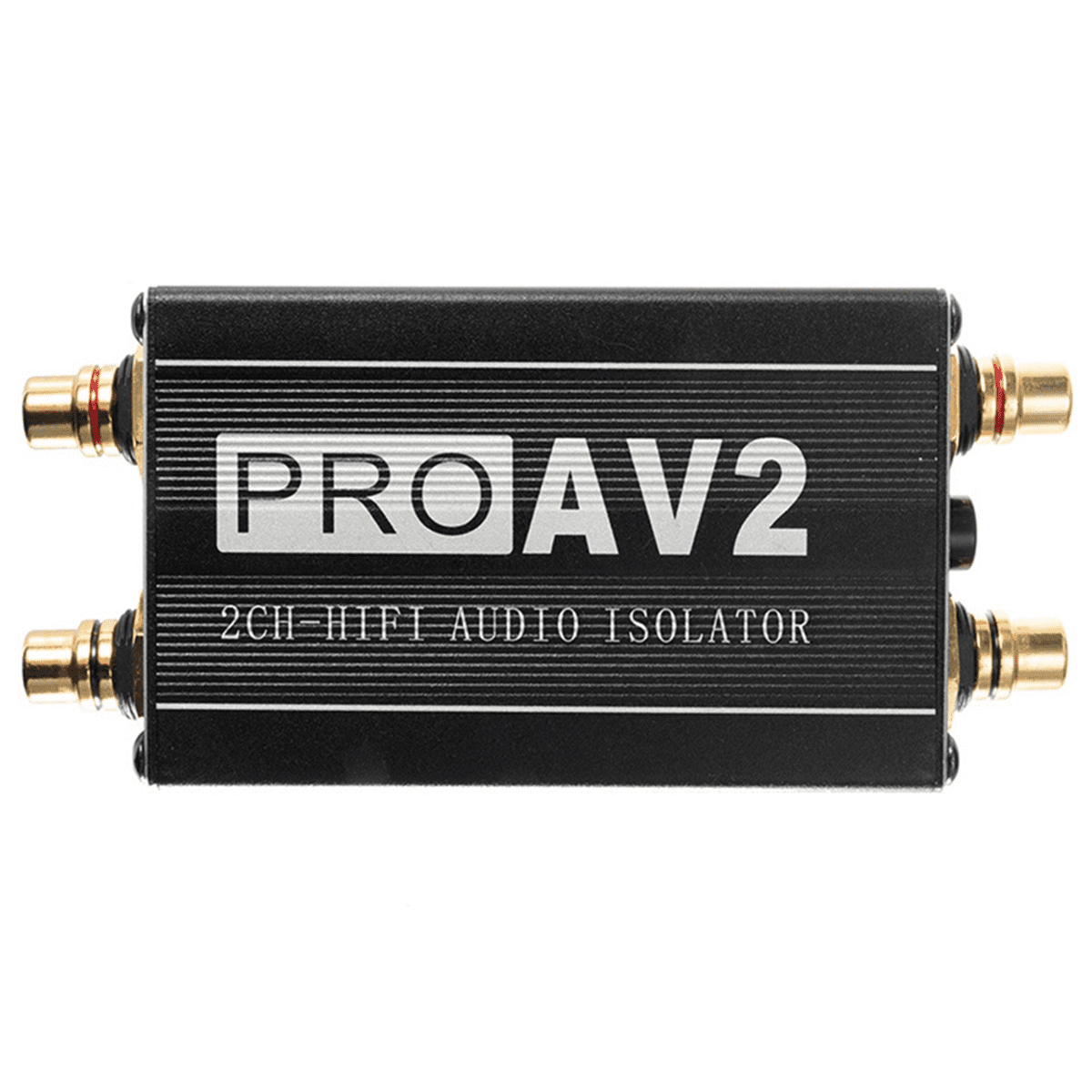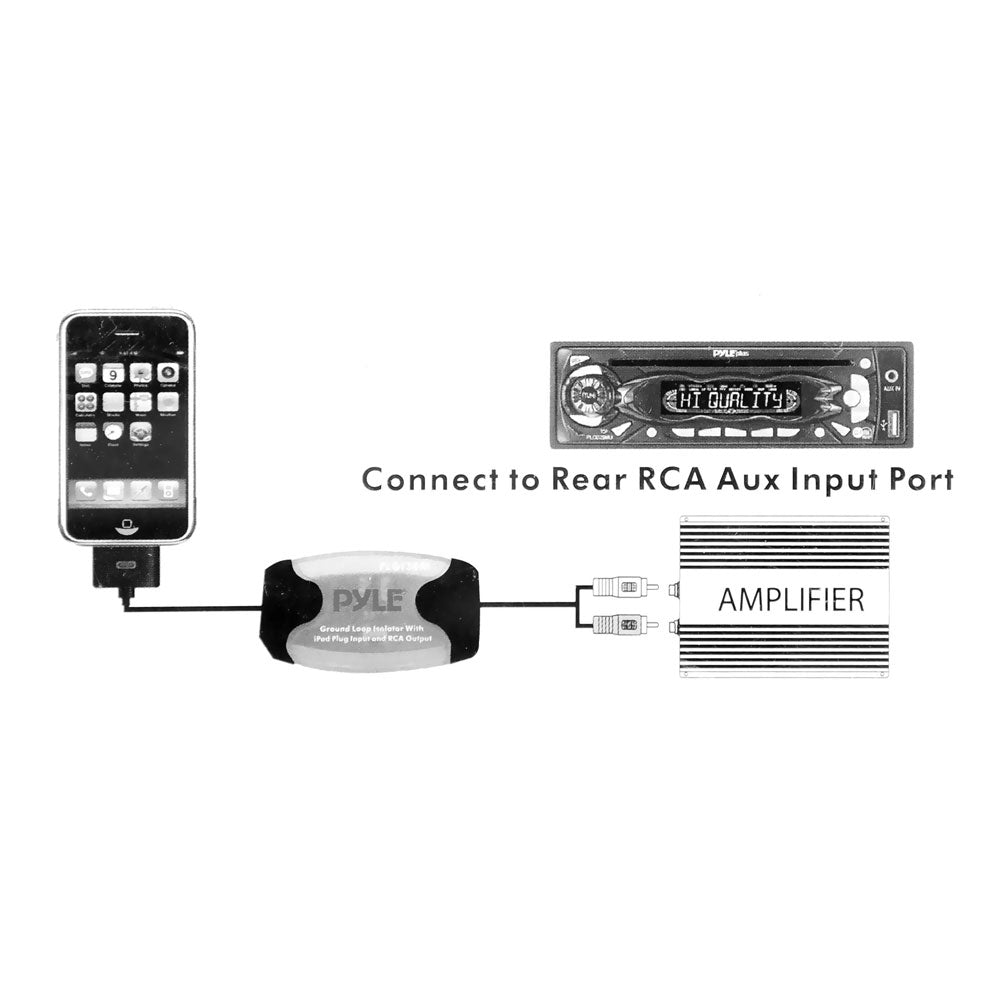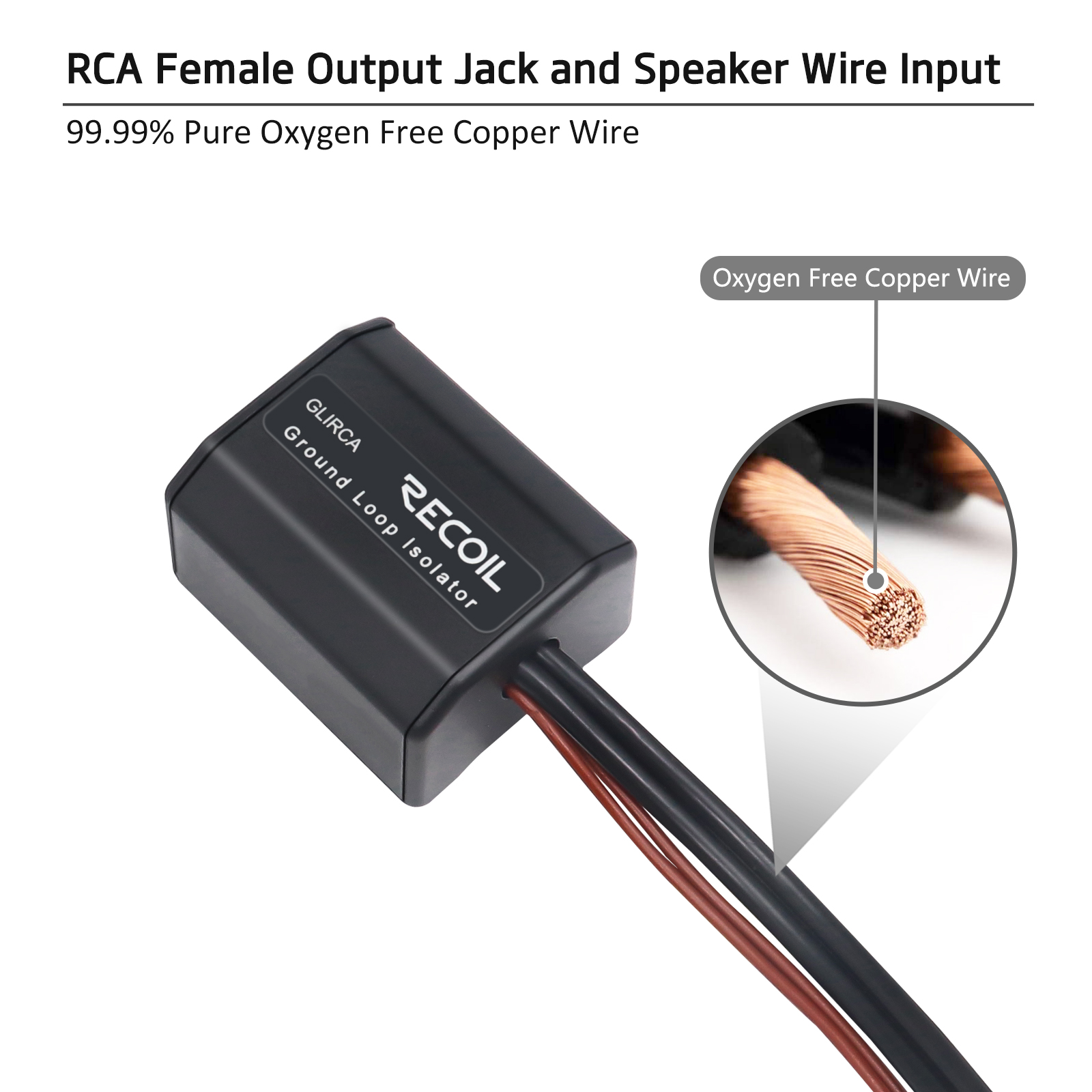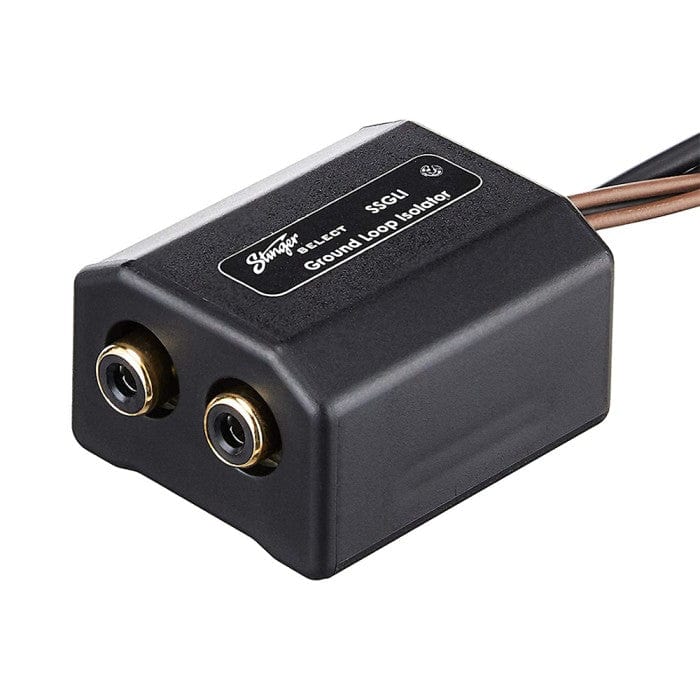When used with car audio, this isolation circuit goes between the head unit and the amplifier or EQ. ) to those connecting the alternator to the battery's positive pole, the battery's negative pole to the chassis, and the chassis to the engine block. Listen to the system with the volume way down, then way up. Put on music. if you are unable to locate the cause, a ground loop isolator can be installed to eliminate ground loop humming and buzzing noise between an audio source and an amplifier. Improper grounding causes most system noise problems. If you are unable to locate the cause, a ground loop isolator (like Recoil Audio GLIRCA, GLI35, NF35,MGLI) can be installed between the receiver's preamp outputs and the amplifiers to minimize this problem. If that doesn't help, have a mechanic check your alternator and battery. For use with audio devices have 4-Channel RCA audio outputs, including pre-amp outputs. Thanks to its super compact design, it can be installed in any tight space. Check Recoil Audio PGB3 wiring kits for more information. Eliminates ground loop noise between the audio source and radio. But, all the old ground loop isolators on market are terrible for signal below 100Hz. Huge DISTORTION! Noise can be introduced into your system from a number of sources. 1. Noise and your new receiver - Is your receiver securely grounded? Improper ground is one of the biggest causes for introducing noise into your audio system. If the noise is still there, then it's being radiated into the speaker wires. - Engine noise and alternator whine Noise introduced through the power and ground wires connected to your receiver is called engine noise or alternator whine. Close to perfect response of +/- . - Noise in the patch cables Noise can be picked up by the RCA patch cables connecting your components. Insert a CD and put your CD player on pause. - Radiated noise If the noise isn’t coming in through the antenna, try pulling the receiver from the dash while a CD is playing. Insert one side (left or right) of a spare patch cable into the amp's left and right input jacks (see illustration below). What can you do? The trick is to determine what the source of the noise is. A very effective fix for electrical system noise is called The Big Three upgrade. Turn on your system and engine. To test them, turn the system off and disconnect the speaker wires from the amps. Now start the car. - Where is the amp mounted? Is it near something that could be radiating noise, like a rear-mounted tuner or computer? If so, unbolt it and move it away to see if the noise stops. Is the ground wire located near a noise source (like a heater, air conditioner, or computer)? Is the ground wire actually connected to the vehicle's ground? Since the antenna lead can act as a ground (thereby enabling a new receiver to operate without its ground wire properly connected), the antenna lead is frequently the source of noise problems. MGLI4 You've installed new receivers or amplifiers in your car, and now you have a noise problem. You might simply need to fill your battery with fluid. Rubber grommets or feet can help isolate the amplifier from the chassis of the vehicle, a potential source of noise. PRO XLR-3 PROFESSIONAL Stereo Ground Loop Isolator 3.5 RCA 6.35 XLR... If the noise is gone, reconnect the cables to the amp, and disconnect them from your receiver. Made from High Fidelity Permalloy Transformers to minimize signal loss, unlike other old ground loop isolators with HUGE DISTORTION under 100Hz. - Check your gain structure If you have an external amplifier in your system, the first thing to do is to quiet any system noise, which sounds like a constant, low hiss. If the noise is present only on the radio, then it's most likely coming through your antenna lead. Unplug the antenna. - Radio static can be caused by antenna noise Check to see if you're getting noise on all sources — CD, auxiliary/USB, AM, and FM. Please read the rest of this section and try some of the simple tests. If engine noise is your culprit, you may hear a whining or clicking sound. Remove your patch cables. First, check for system noise with the engine off. Any contact between your amp's metal casing and your vehicle's body could cause noise problems. Split pin RCA connector with pure Oxygen Free Copper spiral shielding wire. This establishes better current flow and more consistent voltage, which improves your system's signal to noise ratio. To test this, detach the cables from your amp. Arcadia Garden Products Worm Nerd 8 in. Purple 3-in-1 Meter for Measuring Moisture, Light and pH in Compost and Garden Soil Model# WN39 $9.39 Add to Cart - Noise and whine picked up by the power or ground cables Multiple amplifiers can also create ground loop problems, which can usually be solved by grounding each amplifier with its own separate wire. Car Audio Recoil MGLI4 4-Channel RCA Stereo Ground Loop Isolator, Made - Want It All Rca Noise Filter Audio Ground Loop Isolator Schematic Audio Isolator












